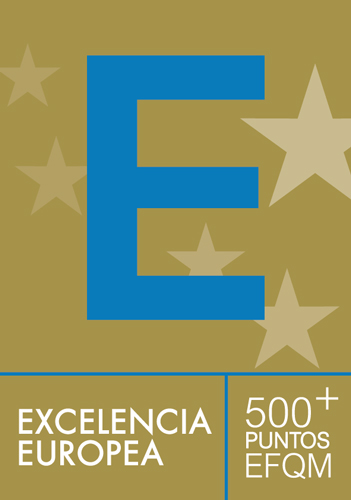Logo
Participation of the Rare Book and Manuscript CRAI Library in national and international collaborative projects and resources
Participation of the Rare Book and Manuscript CRAI Library in national and international collaborative projects and resources
- Art funerari
A project that focuses on reassessing Catalan funerary art, carried out from the UB with the support of the Barcelona City Council and the collaboration of Cementiris de Barcelona. The Rare Book and Manuscript CRAI Library participates primarily through its organization of a virtual exhibition entitled Herència i memòria: La presència de la mort al fons antic del CRAI de la Universitat de Barcelona.
The aim of this project, hosted by the University of Santiago de Compostela, is to compile editions and copies of illustrated works by Ovidius Naso that were printed between the 15th and 19th centuries and are held in Spanish public and private libraries. Ten copies held by the Rare Book and Manuscript CRAI Library are currently listed, and entries for over 25 copies will eventually be included.
This project, an initiative of the University of Cordoba, aims to recover and offer works by Erasmus of Rotterdam that are held in existing Spanish libraries or were held by historical libraries that no longer exist, particularly works from the 16th century, but also including some from the 17th and 18th centuries. Our library holds 56 editions, most of which date to the 16th century.
This project grew out of collaboration between the Franciscan Library of the University of the Americas Puebla and the Franciscan Province of the Holy Gospel of Mexico and the José María Lafragua Historical Library of the Autonomous University of Puebla. Seventeen institutions are currently participating in the initiative. The involvement of the Rare Book and Manuscript CRAI Library, with three brand marks, is particularly noteworthy given that this system of book identification was used almost exclusively in New Spain.
Created and maintained by the Spanish Ministry of Education, Culture and Sport, this catalogue aims to provide descriptions and location details for books and other bibliographic collections held by Spanish libraries (public or private) which, due to their antiquity, unique character or exceptional value, form part of Spain’s historical heritage. Bibliographic records and copies held in the Rare Book and Manuscript CRAI Library have been added to the catalogue intermittently since 2008, and the goal is to reach a point where the entire collection is represented in this reference work. As of the end of 2021, nearly 46,250 bibliographic records have been entered in the catalogue. Additional records continue to be added.
The Catálogo de obras medievales impresas en castellano (COMEDIC) is intended to serve as a database of medieval works printed in Castilian from the last decades of the 15th century through to the late 16th century and to facilitate the study of these works from a literary perspective. The catalogue was created and is maintained by the Clarisel research group, which belongs to the Department of Spanish Philology of the University of Zaragoza. The participation of the Rare Book and Manuscript CRAI Library is ongoing, and over 70 copies have been added to the catalogue to date. .
The main aim of this project, carried out by the Grupo de Investigación sobre Relaciones de Sucesos (S.XVI-XVIII) within the framework of the Biblioteca Digital Siglo de Oro (BIDISO) project, is to create, maintain and disseminate a database of this bibliographic material. Since 2008, the Rare Book and Manuscript CRAI Library has been collaborating by adding editions and copies and making digital copies of these works available through the catalogue. As of the end of 2021, we have added 945 editions (including 777 with digital copies) and 2,170 copies.
Created by the Consortium of European Research Libraries (CERL), this resource is a valuable tool for anyone working in the field of antiquarian books. The CERL Thesaurus provides information on places of printing, names of typographers, publishers and booksellers, and personal and corporate names of owners, drawn from a rich list of databases, catalogues and other resources from across Europe. Since January 2013, the Rare Book and Manuscript CRAI Library, with the participation of the CRAI Technical Processing Unit, has been periodically adding authority records of printers and owners.
This catalogue aims to bring together editions produced by Italian printing presses between 1501 and 1600, as well as foreign editions in Italian for the same period. Hosted at the Central Institute for the Union Catalogue of Italian Libraries and for Bibliographic Information (ICCU), EDIT 16 also compiles information on copies and offers digital copies of these works. The Rare Book and Manuscript CRAI Library periodically provides information on copies and links to the Biblioteca Patrimonial Digital (BiPaDi). It also reports Italian editions that are not yet recorded in the catalogue.
The aim of this project is to produce a global census of works of Jesuit provenance. The UB’s Learning and Research Resources Centre (CRAI) has signed a collaboration agreement with Georgia Southern University to formalize the transfer of information on works held in the Rare Book and Manuscript Collection. Information on books of Jesuit provenance, mainly from the Sant Ignasi School in Manresa, has been sent to the project.
This database aims to track the circulation of copies of editions that are written in Hebrew or have Jewish content by tracing their former owners. To support this goal, copies held in the Rare Book and Manuscript CRAI Library are registered in the various stages according to their former owners, from the first convents and individual owners to the Convent of Saint John of Jerusalem, and finally the University of Barcelona. Some 200 editions have been added to the database. The project was launched by the Center for Jewish History, and numerous American institutions are collaborating on it.
This initiative of the University College Dublin School of History aims to produce a foundational listing of all books published in Spain, Portugal and the New World or printed elsewhere in Spanish or Portuguese between 1472 and 1700. Its scope is worldwide, and Iberian Books also manages the Ornamento project, which compiles ornamentation and illustration from these books. More than 9,500 bibliographic records have been exported from the UB’s online catalogue for addition to the listing.
Under the auspices of the Consortium of European Research Libraries (CERL), the MEI database provides detailed descriptions of each copy of incunabula editions held by the participating institutions with the aim of tracing their path from the time and place where they were printed to their current location. The Rare Book and Manuscript CRAI Library has participated in the project since October 2012 by adding information on the characteristics of the incunabula it holds as work on new, more accurate and expanded cataloguing records progresses. As of November 2021, descriptions have been provided for 89 editions (113 copies).
The MCEM was established to provide researchers with an online catalogue of manuscripts in any language produced in the Catalan-speaking countries of the old Crown of Aragon during the Modern Age. Created and maintained by the Institut d’Estudis Catalans, the database includes records of almost all of the manuscripts held in the Rare Book and Manuscript CRAI Library (595 records).
Memòria Personal is a database of written documentation related to personal writings (diaries, autobiographies, etc.) from Catalonia and other Catalan-speaking territories. Launched by the Autonomous University of Barcelona through the Grup de Recerca de Manuscrits (Department of Modern and Contemporary History) and the Humanities Library, this project involves the main Catalan institutions that hold heritage material of this type. The database currently includes eight manuscripts held in the Rare Book and Manuscript CRAI Library.
A collaborative project led by the Institut de Recerca en Cultures Medievals (IRCVM) that aims to study female spirituality in the Iberian Peninsula from various perspectives. The virtual exhibition includes works from the Rare Book and Manuscript CRAI Library with links to digital copies.
A bio-bibliographical database of texts written in the various Romance vernaculars of the Iberian Peninsula during the Middle Ages and the early Renaissance. The database is divided into several sections. The Catalan collections of the Rare Book and Manuscript CRAI Library – some hundred works, including manuscripts, incunabula and editions dating to the 16th century – have been added to the Bibliografia de Textos Antics Catalans, Valencians i Balears (BITECA). In the near future, Castilian manuscripts will be added to the Bibliografía Española de Textos Antiguos (BETA). The database is hosted by the Bancroft Library of the University of California, Berkeley.
Within the framework of the Centre de documentació (CDRL) and the Institut de Recerca en Cultures Medievals (IRCVM) of the University of Barcelona, this project aims to create a database of scientific and technical works circulating in Catalan (including both works written in Catalan and translations from other languages) during the last centuries of the Middle Ages and the early Renaissance (13th–16th centuries). The database currently includes 17 manuscripts and some printed works held by the Rare Book and Manuscript CRAI Library.
This collective catalogue, hosted by the University of St Andrews, aims to bring together all editions printed before 1700 with details of copies held all over the world. The ancient collection of the UB is represented in part and work is underway to incorporate it in its entirety.
Footer - Copyright
© CRAI Universitat de Barcelona
 Except where otherwise noted, content on CRAI UB web is licensed under a Creative Commons Attribution 4.0 International License.
Except where otherwise noted, content on CRAI UB web is licensed under a Creative Commons Attribution 4.0 International License.









